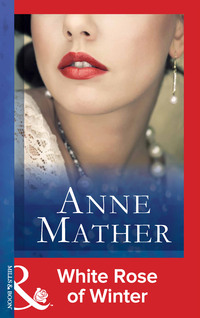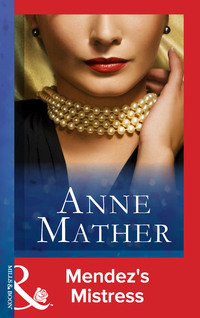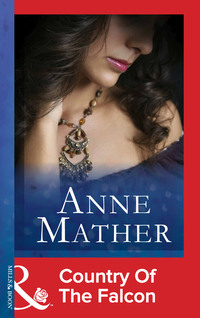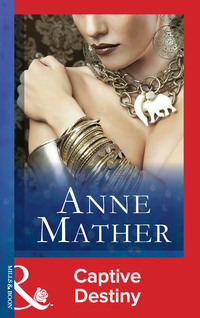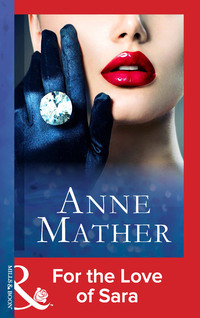
Полная версия
The Longest Pleasure
‘All right?’ Rafe inquired, as she ran her tongue over her dry lips and shuffled back in her seat, and after a moment Helen nodded.
‘Fine,’ she proffered in a taut voice, and he gave her a half-amused look.
‘It’s no shame to admit to being scared now and then,’ he observed. ‘I was a bit scared myself back there. Especially when I felt the wheels going away from me!’
Helen held up her head. ‘And is that supposed to make me feel better?’ she demanded, her tone deliberately scornful. ‘The fact that the macho Rafe Fleming was scared, too?’
There was a pregnant pause and for the space of a heartbeat Helen thought she had gone too far. She had a momentary image of Rafe stopping the Range Rover and tipping her out into the snow—but, thankfully, it didn’t happen. Instead, he cast another hooded glance in her direction before saying: ‘you!’ in such a pleasant tone, that Helen could hardly believe he had used a word she had hitherto only encountered on the written page.
Thereafter, there was silence between them. Helen’s hands were balled into fists, but she refused to sink to the level of bartering that kind of language with him. Besides, she wasn’t at all convinced she would come off best in such an exchange, and she contented herself with anticipating his fury when he learned what she had in mind for him.
The road to the village had been reduced to a single track, but they met no other vehicles before turning into the lane that ran along beside the churchyard. The church itself looked like a cut-out from a Christmas card, thought Helen fancifully, the gravestones softened by the clinging flakes of snow. Across the yard stood the grey-stone mausoleum, where generations of Sinclairs had been laid to rest, and where her grandmother would be interred on Friday. It was a forcible reminder that Nan would not be waiting for her at the house, and a wave of shame swept over her. Ever since encountering Rafe, she had thought of nothing but the revenge she was going to have on him. The reasons for her being here; the guilt she had felt in London; all normal, human instincts, had been obliterated by the hatred that was simmering inside her. And it didn’t help to acknowledge that without Rafe’s intervention, she would probably have been stranded in Salisbury. It was galling, but she had to admit his behaviour today had not warranted so ungracious a response.
The stone gateposts that guarded the boundary of the estate were only a short distance from the village. The gates themselves were open and someone, one of the estate workers probably, had used a snow-plough to clear a path through them. Beyond the grid that prevented cattle from straying, acres of rolling countryside lay beneath a winter carpet. They were still some distance from the house itself. A slight rise, on which a stand of larch and pine trees grew, provided a natural screen to the chimneys of Castle Howarth, but once that rise had been breached, the sprawling elegance of the mansion would be visible.
The Range Rover had no difficulty in negotiating this final hurdle and Helen, still feeling an unwilling sense of gratitude, was obliged to say something. ‘We made it,’ she murmured, forcing a note of courtesy into her voice. ‘I suppose—I suppose I should thank you.’
‘Don’t waste your breath.’ Rafe’s response was chillingly curt. ‘I only came to fetch you because I knew it was what the old lady would have wanted. Though I wonder if you have any conception of what you meant to her.’
Helen choked. ‘Are you accusing me of——’
‘I’m not accusing you of anything,’ he cut in shortly. ‘Just don’t expect those of us who cared about the old lady to feel much sympathy for you. You didn’t care about her. You almost broke her heart.’
Helen was speechless. She wanted to protest. She wanted to scream at him that she hadn’t broken her grandmother’s heart, he had; but the words wouldn’t come. The awful choking sobs were filling her throat again, and it was as well he could not hear them. She didn’t need anything from him, least of all his sympathy. She would suffer her grief in private, not in the company of the man who had done more than anyone else to reinforce the rift between them. He must know it. He must know how she despised him. Yet he could sit there and accuse her of not caring. It wasn’t fair. It simply wasn’t fair!
The Range Rover crested the rise and now the lights of the house were spread out below them. Even through the driving veil of snow, it was painfully familiar, and she remembered the first time she had seen Castle Howarth. Nan had brought her back here, after her parents’ funeral, and although she had been shocked, and a little tearful, her grandmother had quickly made her feel at home. Nan had always made her feel wanted, she acknowledged now, stifling a sob. Although their lives had drifted apart, she had always been there in the background, someone to turn to if things went wrong. For the first time, she wondered if her grandmother had ever felt the same way. And who had she turned to when she needed consolation?
Helen’s uneasy thoughts were interrupted by the realisation that the lights she could see seemed to be coming from the first floor as well as from the ground floor of the house. There were lights, too, in what she knew to be the formal reception rooms and the hall. The whole house seemed ablaze with lights, and her head jerked towards Rafe, seeking an explanation. The main apartments were never used, and someone must have authorised this extraordinary extravagance.
‘The old lady made me promise to open up the house for the funeral,’ he remarked, turning his head to meet her half-accusing gaze, and she saw the challenging glitter of his eyes. ‘There has been a stream of visitors ever since your grandmother died. I guess she knew what would happen, and she wouldn’t have wanted them received in her sitting room, even if that was where she spent most of her time.’
Helen found her voice. ‘Are—are you saying she asked you——’
‘I was there,’ Rafe responded flatly. ‘If you don’t like it, it’s just too bad. The dust-sheets have been removed, and Paget and the rest of the staff have been working themselves rigid trying to get the place in some kind of order before the old lady has to leave.’
Helen swallowed. ‘She’s—I mean—Lady Elizabeth is still in the house?’
‘In the master bedroom, yes. It’s the apartment her parents used. The bed she was born in. But not, regrettably, where she died.’
Helen moistened her lips. ‘You seem to know a lot about it,’ she said tightly.
‘She talked to me,’ Rafe replied without expression. ‘Well—here we are.’ He brought the Range Rover to a halt and switched off the engine. ‘You go ahead. I’ll fetch your things.’
Helen didn’t offer any protest. Now that she was here, the impact of death seemed all around her, and she climbed out of the car with an overwhelming feeling of loss. In spite of the lights burning so brightly in the windows, the house was empty, she thought dully. No false illumination could rekindle her grandmother’s spirit. She had to face the fact that Castle Howarth could never be the same. She had been welcomed here as a child, but she felt like an interloper coming back to claim her inheritance.
She guessed Rafe would expect her to climb the steps to the main doors, but she couldn’t do it. Time enough to stand on ceremony when she had to. Instead, she trudged through the snow to the side entrance she and Nan had always used. Right now, she needed the reassurance of familiar things, and she hoped Miss Paget had not neglected to light a fire in her grandmother’s sitting room.
The west wing curved in a half moon, away from the porticoed façade of the main building. Although the central elevation had three storeys and a castellated parapet, the wing Helen and her grandmother had occupied had only a single level. It was reached through a narrow arched doorway at the far end of the building. The door gave on to a short flight of steps that led up to a central corridor, and the windows of the apartments were at least ten feet from the ground.
Helen cast a fleeting glance over her shoulder before opening the heavy door and stepping inside. Rafe was still sitting in the Range Rover, evidently giving her time to make her entrance, but she found herself wishing he had come with her. It was ridiculous, after all they had said to one another, but Rafe seemed the one remaining link with her grandmother, and although she knew it would pass, right now even his cynical company would have been welcome.
She had reached the top of the steps and was hovering there, one hand still gripping the banister, when the door to the dining room opened and an elderly lady emerged. Small and rather dowdy, her thin, mostly-grey hair cut in its usual severe style, Miss Paget had aged considerably since Helen had last seen her. Yet, it wasn’t so much in her looks or her appearance, which Helen had always privately considered far in advance of her years. It was more in the way she moved, in the stiff, unyielding way she held her body; as if her bones had lost their flexibility and her limbs ached because of it.
She saw Helen at once, though she gave an involuntary start, as if her appearance was not altogether expected. ‘You came!’ she exclaimed, and then, as if realising her words could be misconstrued, she made an effort to recover them. ‘I mean—Rafe found you then. I heard the car, but I thought he was alone.’
‘No, he found me.’ Helen made an effort to keep her tone light. ‘It’s lucky he did. The weather is quite appalling.’
‘Yes.’ Miss Paget nodded. ‘I was just saying to Mrs Pride this morning, it’s just as well Lady Elizabeth isn’t going to be bur—I mean——’ She broke off in obvious confusion. ‘Forgive me. I’m afraid I hardly know what I’m saying.’
‘Oh, Paget!’ Helen made an involuntary movement towards her, but to her dismay the old lady stepped back from her.
‘Please,’ she said, glancing a little apprehensively behind her. ‘I’m sure you must be tired after your journey. Why don’t you go and freshen up? I don’t have to show you where your room is, do I? Your grandmother wouldn’t allow anyone else to use it. I’m sure you’d like some time to wash and,’ her gaze flickered over the vivid orange parka, ‘—and change your clothes. I’ll go and ask Mrs Pride to make you some tea.’
Helen stared at her without moving. ‘Paget,’ she said uneasily. ‘Paget, is something wrong?’ She shook her head. ‘Surely, you don’t believe I didn’t want to come to the funeral?’
‘Of course not.’ But Miss Paget’s denial was just a little too vehement. She pulled the shawl she was wearing closer about her shoulders and forced a faint smile. ‘Look, I must go and tell Mrs Pride you’re here. We’ll have plenty of time for talking later.’
Her retreat was slow and evidently painful, but it was a retreat just the same, and Helen felt a hollowing in her stomach. She stared after the old lady, unwillingly aware that what Rafe had said was true. Until now, she had been unable to believe that Paget had sent that awful telegram. But now she did. They had spoken together like strangers!
‘Do you want these in your room?’
Helen jumped violently at the unexpected sound of Rafe’s voice, and her vocal chords shook a little as she conceded that she did. ‘It—it’s along here,’ she said, avoiding his eyes as she led him to a room at the end of the hall. ‘Or—or do you know that, too?’ she added, a trace of bitterness invading her tones. ‘You seem to know everything else.’
She opened the door, and Rafe shouldered his way past her, carrying the cases into the room and dumping them unceremoniously in the middle of the faded Aubusson carpet. Then he straightened and regarded her without hostility.
‘I did try to warn you,’ he said, and when she could no longer sustain that cool green gaze, he cast a speculative glance about the apartment.
Seen through his eyes, it must look very old and very worn, thought Helen reluctantly, noticing the evidence of moth in the heavy damask curtains, and the bare patches in a carpet which had once been richly patterned. There was even a faintly sour smell of mildew in the air, as if the clumsy iron radiator, grunting in the corner, was having little success in banishing the damp atmosphere.
‘I suppose your apartment in London is the exact opposite of this place,’ Rafe remarked carelessly, and Helen stiffened.
‘It’s modern, if that’s what you mean,’ she agreed, holding meaningfully on to the door handle. ‘Thank you for——’
‘But I bet it lacks character,’ Rafe continued, pushing up the leather jacket and sliding his hands into the pockets of his trousers. ‘Doesn’t it?’
Unwillingly, his leisurely action had drawn her attention to the powerful width of his thighs, outlined beneath the fine woollen material. He had strong legs, long and muscular, and when he flexed his hands in his pockets, the cloth was stretched tautly across his flat stomach. His movements were not intentionally suggestive. She doubted he was even aware of her watching him. His muscled frame was entirely male; she would have had to have been blind to be unconscious of that fact. But what disturbed her was her awareness of the lean powerful body beneath the tight-fitting trousers, and she was shockingly reminded of how once she had thought of little else.
The memory stunned and sickened her. Dear God, she thought, why had she thought of that now? Ever since that terrible day, when Rafe had followed her from the barn and taken his revenge upon her, she had built a barrier between herself and any strong sexual emotion. Oh, she was not a virgin—her relationship with Adam had seen to that. And he had been flattered that she had, as he put it, saved herself for him. But the truth was her instincts in that direction had been strangled on that August afternoon when she was fifteen, and it had been a simple matter to keep her other boy-friends at bay when she herself had felt no compunction to change things.
And now, after all these years, to find her pulse-rate quickening and a feeling of moist heat flooding her thighs, she was filled with revulsion. She had only to remember what he had been doing to Sandra in the barn to rekindle the loathsome images that had haunted her for years. But those images didn’t help her here. She despised him, she told herself fiercely. He was an animal! And if her body had betrayed her, it was a measure of the fear he still provoked.
‘Doesn’t it?’
Rafe’s lazily provoking voice aroused her from the blackness of her thoughts, and she saw him looking at her a little strangely as she pushed the door back and forth on its hinges. ‘Wh—what?’
‘Your apartment,’ he jeered softly. ‘I was suggesting it had no character. But then, character doesn’t mean much to you, does it!’
Helen stared at him angrily, and then stepped stiffly aside. ‘Will you please go?’ she ordered coldly. ‘I’d like to have some time alone before Miss Paget comes back.’
‘Before you go to see the old lady?’ prompted Rafe, reminding her of the unwelcome duty ahead of her, and Helen’s lips tightened.
‘I shall pay my respects to Lady Elizabeth in my own time, Mr Fleming,’ she retorted, using the formal mode of address deliberately. ‘Now, if you don’t mind …’
Rafe lifted his shoulders in an indifferent gesture, and then strolled carelessly out of the room. Helen closed the door behind him with a satisfying thud. Then, resting her shoulders against the panels, she took several steadying gulps of air. She had to get a hold on herself, she thought furiously. If Rafe Fleming could disconcert her that easily, what chance did she have of establishing her authority here? She had to remember who she was, and who he was, and if she could only survive until the funeral was over, her problems would resolve themselves. No one, not even Rafe Fleming, could force her to keep him on her payroll. If, as she feared, judging by the deterioration of this room, the house had to be sold, he could take his chances with the new owners. She would not stoop to blackening his character, even though it was what he deserved. But it was unlikely he would find another employer as trusting as her grandmother.
Reassured by this assessment, Helen left the door to walk to the windows. Already her presence in the room was causing a film of condensation to form, and after casting a regretful look at the snow, she turned to survey her domain. She hoped the bed was aired. Lady Elizabeth had had no liking for modern springing, and all the beds had feather mattresses. They could be cosy on cold winter nights, Helen remembered, when their downy softness closed around you. But they could also be very uncomfortable if the mattress hadn’t been shaken and the feathers lumped together beneath your weight.
The room itself was much as it had been when she first came to live with her grandmother. A carved fireplace, seldom used now, and screened by a tall earthenware vase, occupied a prominent position on one wall. The windows took up a second wall, and the door into the adjoining dressing room and bathroom opened from the third. The bed, a square four-poster, stood against the wall backing on to the hall outside, its faded pink tester and embroidered satin coverlet matching the carpet and curtains. There were several pictures on the walls: old oil paintings, most of them; hung there in the days when it was considered unfashionable to waste any inch of space.
Now, realising she was just wasting time, Helen bent and lifted one of her suitcases, putting it on the carved oak chest conveniently placed at the foot of the bed. It was the chest where she used to keep her toys, and she wondered if her grandmother had kept all her old dolls. But there would be time enough later to find out. Particularly if she was forced to consider selling the house and everything in it.
Helen was in the bathroom when she heard someone come into the bedroom and, expecting it was Miss Paget, she came to the dressing room door. But it was not her old nurse who was standing in the middle of the room, holding a tray of tea. It was a young woman, probably about her own age, whose cool blonde features wore an expression of impatience. She was of medium height, perhaps a little heavier than Helen, but not much. However, she was wearing a striped nylon overall over a skirt and blouse, and Helen was obliged to assume that she was another employee.
Even so, Helen couldn’t help feeling embarrassed at her own appearance. It was one thing to confront her old nurse in her bra and panties, with strands of dark hair escaping from the coil at her nape, and quite another to confront a complete stranger. Of course, the lace-trimmed bra and silk briefs were probably as respectable as a bikini, but they were not a swimsuit and she was not on the beach.
‘I’ve brought your tea, Miss Michaels,’ the girl said, the look she cast about her eloquent of her disdain for a room already strewn with Helen’s belongings. In addition, every flat surface was covered with ornaments or photographs, and the suitcase Helen had opened seemed to be occupying the only remaining space.
‘Please—just put the tray on the bed,’ said Helen quickly, wishing she had been more prepared. ‘Er—thank you, Miss—Miss——’
‘It’s Mrs Sellers,’ replied the girl unsmilingly, setting down the tray with evident misgivings. ‘Oh—and Mrs Pride said to tell you she’d like to see you, when you have a minute.’
‘I see.’ Snatching up a silk wrapper, Helen pushed her arms into the sleeves, and came more fully into the room. ‘Do—do you work here, Mrs Sellers?’
‘Yes, miss.’ She was non-committal. ‘Is that all?’
‘As—as what were you employed by my grandmother?’ Helen persisted, unwilling to let her go without at least learning her occupation. ‘Have you been here long?’
‘About six months, on and off.’ Mrs Sellers evidently resented this inquisition, but Helen refused to be intimidated.
‘On and off?’ she prompted, and the girl expelled an obvious sigh.
‘My husband works for Mr Robinson,’ she explained after a moment. ‘When Mrs Pride needs someone to help out, she asks me.’
‘Oh.’ Helen nodded. Amos Robinson, as she knew very well, ran the home-farm. That was how Sandra Venables had come to be employed. Her father had worked for Amos Robinson, too.
‘Can I go now?’
There was a definite edge to the girl’s voice, and Helen wondered why. As far as she knew, they had never met, and she couldn’t believe her grandmother would have discussed her with the staff. With Miss Paget, perhaps. She had been more in the nature of a friend—a companion. And Rafe, for reasons best known to herself. But not with this sullen female, surely. Mrs Sellers simply did not inspire anyone’s confidence.
‘Yes. Thank you,’ said Helen now, dismissing the young woman with some misgivings. If Mrs Sellers was an example of what she was going to have to face by becoming mistress of Castle Howarth, perhaps she ought to consider selling the place with rather more enthusiasm.
Still, the tea was hot, and there was a plate of Mrs Pride’s home-made Dundee cake residing on the tray. Anxiety had made her hungry, Helen found, and she ate two slices of the rich fruit cake before replacing the black jumpsuit she had travelled in. It seemed as appropriate as anything else, and at least it was warm. She had already been reminded that this was not a place where one could trail about in one’s underwear without inviting goosebumps.
It was completely dark outside by the time Helen made her pilgrimage to her grandmother. Although it was barely four o’clock, night had closed in. Casting one final look out of her windows before drawing the curtains, Helen guessed the snow had finally brought traffic to a standstill. Nothing moved in the black and white landscape; nothing, that is, except the snow itself.
To reach the main portion of the house, she had to open the door into the corridor that led to the huge reception hall. For years now, the door had been kept locked, ever since a would-be burglar had broken into the conservatory and ruined all Mr Dobkins’ plants. The fact that Miss Paget had heard him and raised the alarm was no guarantee he would not come back, the police declared. Thereafter, a complicated warning system had been fitted to the doors and windows, and the door between the family wing and the rest of the house had been properly secured.
It was strange, walking through the empty building after so many years. Strange, and eerie, Helen decided, even though the lights were on, and someone had made an obvious effort to clear the place of dust. She had never thought about the shortness of life before, but she discovered death made one aware of one’s own mortality. It was chilling to remember the generations of Sinclairs who must have trod these corridors who were now only dust in the mausoleum at the church.
The great hall soared above her, two storeys high, with the galleried landing circling its cathedral-like dome. The staircase alone was at least twelve feet wide, and the twin banisters which marched beside it had been carved by a master craftsman. As long as Helen remembered, there had never been a carpet on the stairs, but now a richly-patterned broadloom had been spread from top to bottom. It cushioned her feet as she began to climb to the first floor, and added to the sense of other-worldliness that just being here had created.
The bedroom where her grandmother was lying was directly ahead of her at the top of the stairs. The huge crystal chandelier which had once lighted the way to the ballroom was dark this afternoon, the only illumination coming from wall-lights set in their sconces around the gallery.
Helen pushed at the door with fingers that trembled just a little, and then stepped back in alarm when the door refused to open. But it was only the heavy velvet curtains that hung inside the room catching under the door that prevented her entry, and she knew an hysterical urge to laugh when they finally fell aside. Just for a moment she had imagined it was an inhuman hand holding her at bay and, after all her self-analysis, she was inclined to give it more significance than it deserved.
All the same, her knees were decidedly unsteady as she advanced towards the bed. To her relief, lamps and not candles burned beside her grandmother’s body. She didn’t think she could have borne their wavering light in her present state of suggestibility and, even now, she was very tense. She had never seen a dead body before. She had been too young when her parents died, and there had been no one else. Of course, she hadn’t told Rafe that—or anyone else, for that matter—and in consequence she was apprehensive and perhaps a little bit fearful.


